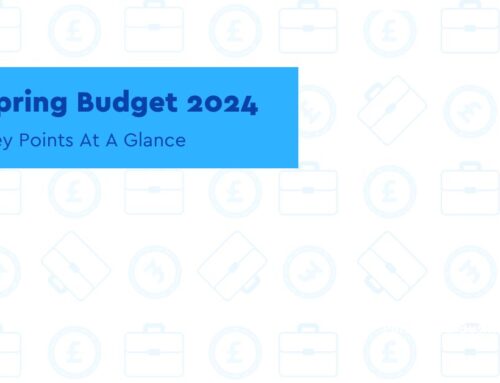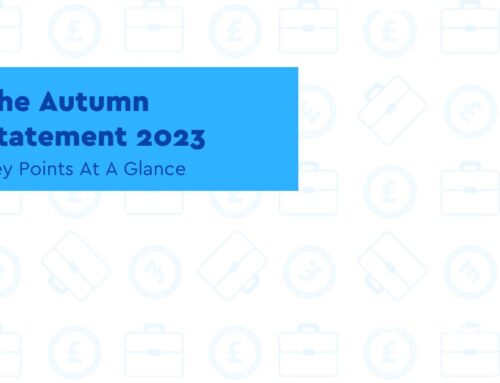Business rates revaluations consultation launched
Key Points
- The government to input on plans to drive regularity of business rates revaluations
- The consultation is part of the government’s wider review into business rates
The UK government is seeking input on plans to boost the regularity of business rates revaluations.
HM Treasury launched a consultation on business rates reform measures that could see revaluations of non-domestic properties take place every three years, rather than the current five-year period.
The consultation is part of the government’s wider review into business rates, which will launch this autumn.
“As our economy is recovering, we are supporting businesses to build back better,” financial secretary to the treasury Jesse Norman said.
“Proposals set out in this consultation would mean that valuations more quickly reflect how the economy is performing, making the business rates system more accurate and responsive, while balancing the burden for ratepayers.”
Between 1990 and 2010, business rates revaluations took place every five years. But the 2015 revaluation was postponed until 2017 and last month, the 2021 revaluation was postponed until 2023 to reduce uncertainty for businesses affected by Covid. It will be based on property values as of April 1, 2021.
The Treasury claims that making revaluations more frequent would ensure they better reflect changing economic conditions.
The consultation, which concludes in October, also contains proposals for introducing a duty to notify the Valuation Office Agency (VOA) and local authorities of relevant changes to the occupier and property, as well as a requirement for ratepayers to confirm certain data annually.
The government is also seeking views on how business rates multipliers are set, how effective business rates reliefs have been and what role local authorities should have in determining business rates reliefs and exemptions.
HMRC posts renewal reminder for tax credits claims
Key Points
- Over 2.5 million annual review packs were posted to individuals between April and June
- Recipients will either have an ‘auto-renewal’ reminder or a ‘reply required’ notice
HMRC is reminding tax credits customers they have one month left to renew their tax credits claims ahead of the July 31, 2021 deadline.
In a press release from July 1, it said that around 440,000 customers were still to make their claims.
Over 2.5 million annual tax credits review packs were posted to individuals between late April and early June.
Recipients will either have an ‘auto-renewal’ reminder or a ‘reply required’ notice, the latter requiring customers to renew their claims ahead of the deadline to continue receiving tax credits payments.
Myrtle Lloyd, HMRC’s director general for customer services, said:
“We know how important tax credits are to our customers, so we’ve made it quicker and easier to renew claims online. There’s no need to wait for the July 31 deadline – do it now by searching ‘tax credits’ on GOV.UK.”
Customers do not need to report any temporary falls in their working hours as a result of COVID-19.
Instead, they will be treated as if they are working the regular hours for up to eight weeks after the coronavirus job retention scheme ends.
Talk to us about renewing your tax credits.
Using the Trade Tariff tool to pay the right Customs Duty and import VAT
Key Points
- You’ll need to find the right commodity code for any goods your business imports or exports
- The trade tariff tool will help identify details about your product
HMRC has updated its guidance for businesses on how to use the trade tariff tool to classify goods correctly and pay the right Customs Duty and import VAT.
You’ll need to find the right commodity code for any goods your business imports or exports.
This will help you:
- Complete import or export declarations and other paperwork
- Make sure you pay the right Customs Duty and import VAT
It will also help you check if:
- You need a licence to move your goods
- You could pay less Customs Duty (for example because your goods are covered by a trade agreement)
- Your goods are covered by:
- Agricultural Policy
- Anti-dumping duties
- UK safeguarding measures
- Tariff quotas
Use the Trade Tariff tool
You need to know the details about your product. This may include the:
- Type of product
- Purpose of the product
- Materials used to make it
- Production methods used to make it
- Way it’s packaged
Goods that cannot be imported in a single consignment
If you have goods (like large machinery) that cannot be transported in a single consignment, you may need to split them up.
Find out if your goods qualify for import in split consignments and what you need to do to import goods in this way.
Items packaged as a set
If your items are packaged in a set to sell and be used together, you should classify them using the most significant item in that set.
If you cannot work out which item is the most significant, use the commodity code that has the largest numerical value.
You must classify the items separately if they’re either:
- Not packaged as a set for retail sale
- Not to be used together
Access the UK Global Online Tariff here to look up commodity codes, duty and VAT rates
Calls for reform as thousands of savers caught in pensions tax trap
Key Points
- In 2018-19 34,220 taxpayers reported that their pension contributions exceeded their annual allowance
- The lifetime allowance will stay at its current level of £1,073,100 until April 2026
Industry experts have called for a review of the pensions tax system after the number of savers breaching the annual and lifetime allowances increased again in 2018-19.
Data from HM Revenue and Customs, published last week (June 30), showed in 2018-19 34,220 taxpayers reported that their pension contributions exceeded their annual allowance via their self assessment forms, with total excess savings of £817m.
Although this was a drop from the £912m in contributions exceeding the allowance in the previous year, the number of people caught by the annual allowance was up 14 per cent, from 29,910 in 2017-18 to 34,220 in 2018-19. In the previous year it had already risen by 60 per cent.
According to consultants LCP, if a typical tax rate of 40 per cent was assumed, this would generate £326m for the Exchequer – with 4,310 more individuals impacted than a year earlier.
The average charge per member on this basis would have been £9,549, LCP said.
There are two ways of paying an annual allowance tax charge: via scheme pays through an Accounting for Tax (AFT) return and through an individual’s self-assessment tax return.
The data showed that the value of annual allowance charges reported by schemes via the AFT return in 2018-19 was £209m, a 71 per cent increase on the £122m reported in 2017-18.
Andrew Tully, technical director at Canada Life, said: “Even something which sounds as simple as an annual allowance is complicated by the fact we have three different limits – a standard allowance, a very low allowance for those who have flexibly accessed their benefits, and a fiendishly complicated position which reduces the limit for higher earners.
“This complexity means many individuals may be unintentionally caught by the AA, although this should ease in more recent tax years due to the rise in the tapered annual allowance threshold.”
Lifetime allowance
Meanwhile in 2018-19, 7,130 lifetime allowance charges were reported by schemes through AFT returns.
The total value of these was £283m, a 6 per cent increase from the £269m the year before.
According to the data, 1,400 people paid a 55 per cent lifetime allowance charge and 5,730 people paid a 25 per cent charge, making up 7,130 cases in total, up slightly on the 7,030 cases a year earlier.
As part of the 2021 Budget, Chancellor Rishi Sunak announced that the lifetime allowance would stay at its current level of £1,073,100 until April 2026, instead of increasing in line with the consumer price index.
Ian Browne, pensions expert at Quilter, called this “an aggressive tax raid on pensions” which will see many more people caught out with large tax bills in the future.
Browne added: “Recent rumours around the lifetime allowance threshold dropping further to £800,000 or £900,000 will mean even more pension savers are caught by the tax charge.
“Pensions by their very nature are a long-term product and it’s unfair of the government to constantly move the goal posts.”
Karen Goldschmidt, partner at LCP, said the tax system was too complex and needed to be simplified as more people become affected.
Goldschmidt said: “The annual and lifetime limits were originally designed to catch only those with the largest amounts of pension saving in a given year or with the largest pension wealth over a lifetime.
“But the Treasury has increasingly seen pension tax relief limits as a ‘go-to’ source of additional revenue, especially compared with raising headline tax rates.
“The current system reflects a stream of salami slicing and knock-on ‘tweaks’. We now have a system subject to constant change and uncertainty, with considerable complexity and with no obvious and coherent rationale.
“It is time for a fundamental rethink of tax relief limits to come up with a system which is simpler, less distorting and which will stand the test of time”
Weekly HMRC, Gov’t and tax updates
Pandemic ‘offers silver lining’ for first-time buyers
Two in five first-time buyers say they will be able to purchase a property sooner than expected because they have saved more during the pandemic.
Almost half of aspiring homeowners have been able to save more towards their first property during the Covid crisis, with the average squirreling away an extra £500 a month.
Only a fifth of people said the pandemic had delayed their buying plans, according to research by Yorkshire Building Society.
OECD: 130 countries back international tax reform
A global corporate tax rate of at least 15% was agreed upon by 130 countries, the Organisation for Economic Co-operation and Development has announced.
According to the OECD, the historic agreement would ensure an extra $150bn in taxes is paid by large corporations annually and that $100bn of profits will be reallocated each year to countries in which the corporations earn profits which are not taxed there. It hopes to have the rules in place next year, to be implemented in 2023.
BEIS shares new online tool for working families
The Department of Business, Energy & Industrial Strategy has released a new online tool to help expectant parents share time off in the early stages of their baby’s life.
the new tool will make it easier for expectant parents to access and understand Shared Parental Leave and Pay. Parents will be able to check their eligibility for the scheme, calculate their pay entitlement, as well as downloading all the documents they need to secure leave from their employer.
With shared parental leave, working parents can share up to 50 weeks of leave and 37 weeks of pay so one of them is always home with their child in the first year of their life.
Alternatively, eligible parents can spend up to six months off work together.
State pensions predicted to rise by 8%
Retirees could see their pensions rise by 8% next year according to the Office for Budget Responsibility (OBR).
State pensions are guaranteed to rise each year until at least 2024 under the triple lock, which means they increase in line with rising inflation, growing average wages, or 2.5%, whichever is highest of the three.
In the three months to April 2021, earnings growth hit 5.6%, and if the Bank of England’s forecast that earning growth could rise to 8% over the next two months is accurate, the Government will have to fork out an extra £3 billion, the OBR said.
At present, the new flat-rate state pension for those who reached state pension age after April 2016 is £179.60 a week.
Those who reached the state pension age before April 2016 currently receive £137.60.
Get In Touch
At Morgan Reach, we understand every business needs a little help now and again-especially when it comes to the financial side of things. Therefore, to help our clients and visitors we endeavour to cover as much of the business news as possible. If you are self-employed or run a business and need assistance and advice on how these news could make a difference to you or your business, feel free to get in touch with the experts at Morgan Reach. Our business growth experts at Morgan Reach will guide you through what support is available for you or your business as well as the latest news that may affect you.







